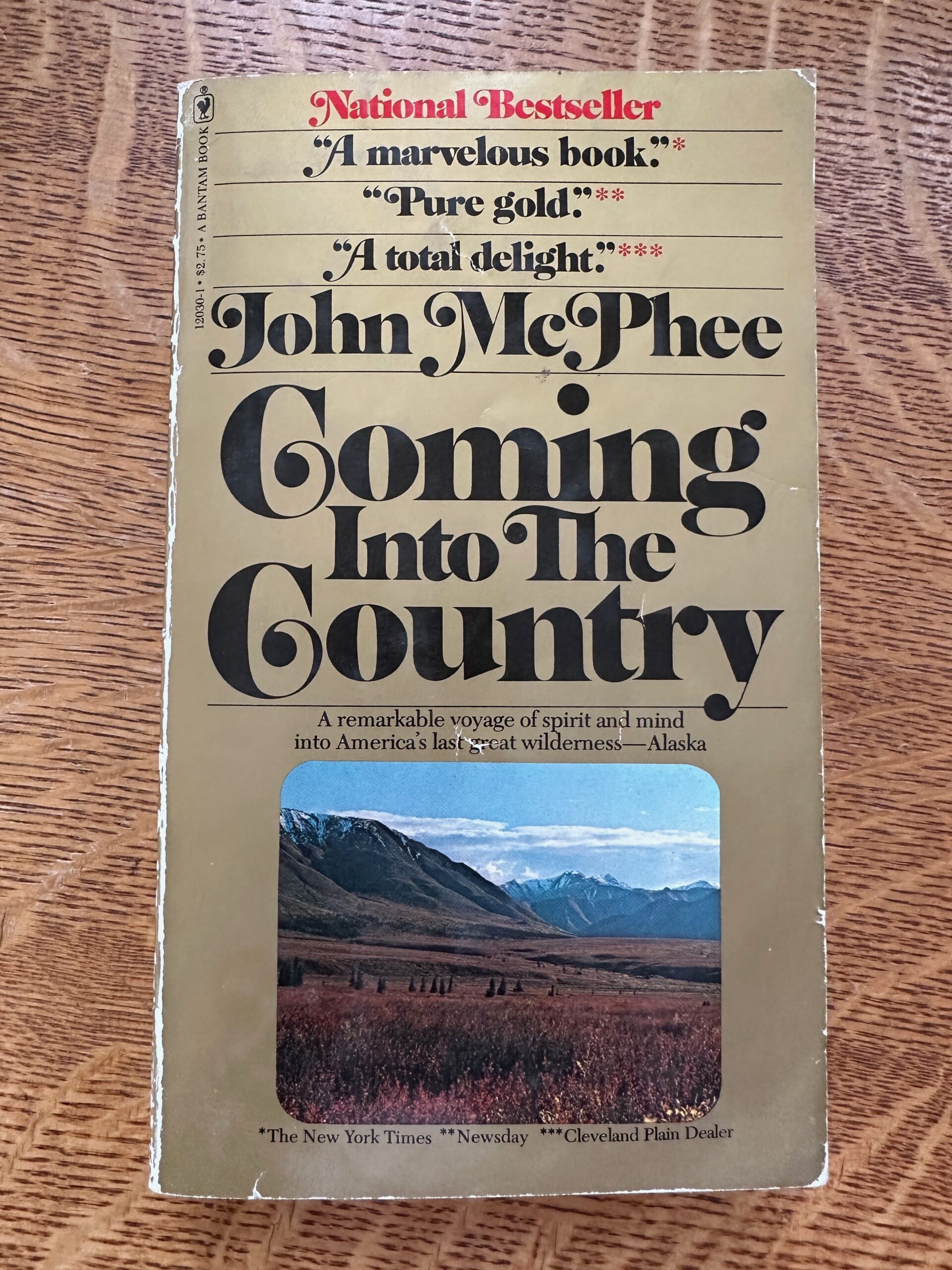Coming into the Country by John McPhee is a richly detailed exploration of Alaska, examining its landscapes, people, and the complex relationships between its wilderness and those who live there. Published in 1977, the book is divided into three distinct sections, each focusing on different aspects of Alaska’s geography, culture, and identity.
1. “At the Northern Tree Line”
This section delves into McPhee’s travels in the Brooks Range, a vast and remote wilderness in northern Alaska. He accompanies a group of government officials, environmentalists, and geologists on a rafting expedition to explore the potential establishment of a national park. McPhee portrays the stunning beauty and harsh conditions of the Arctic landscape while exploring debates about conservation, development, and the value of untouched wilderness.
2. “What They Were Hunting For”
Here, McPhee turns his focus to Fairbanks, the second-largest city in Alaska, and its surrounding areas. He examines the lifestyle of those drawn to the region during the gold rush and its aftermath. The narrative highlights the resilience and ingenuity of Alaskans who embrace a rugged, independent way of life. This section also reflects on the tension between modernity and tradition, particularly as Alaska evolves under the influence of oil discoveries.
3. “Coming into the Country”
The final section centers on the town of Eagle, a remote community along the Yukon River. McPhee describes the lives of its residents—homesteaders, trappers, and those seeking solitude in the wilderness. Their deep connection to the land contrasts sharply with the encroaching pressures of modern governance and infrastructure. This section is a meditation on self-reliance, isolation, and the balance between human life and nature.
Key Themes:
- Wilderness and Survival: McPhee vividly depicts Alaska’s breathtaking landscapes and the challenges of living in such an environment.
- Independence and Individualism: The book explores the frontier spirit of Alaskans, who value autonomy and live on their own terms.
- Conservation vs. Development: Throughout the narrative, McPhee presents the conflicts between preserving Alaska’s natural beauty and exploiting its resources for economic gain.
- Cultural and Regional Identity: McPhee examines the diverse ways Alaskans define themselves in relation to their environment.
McPhee’s writing combines journalistic inquiry with poetic descriptions, offering readers a deep and nuanced understanding of Alaska as a unique and complex region. The book resonates as both a travelogue and a profound reflection on humanity’s relationship with the natural world.

Comments are closed.